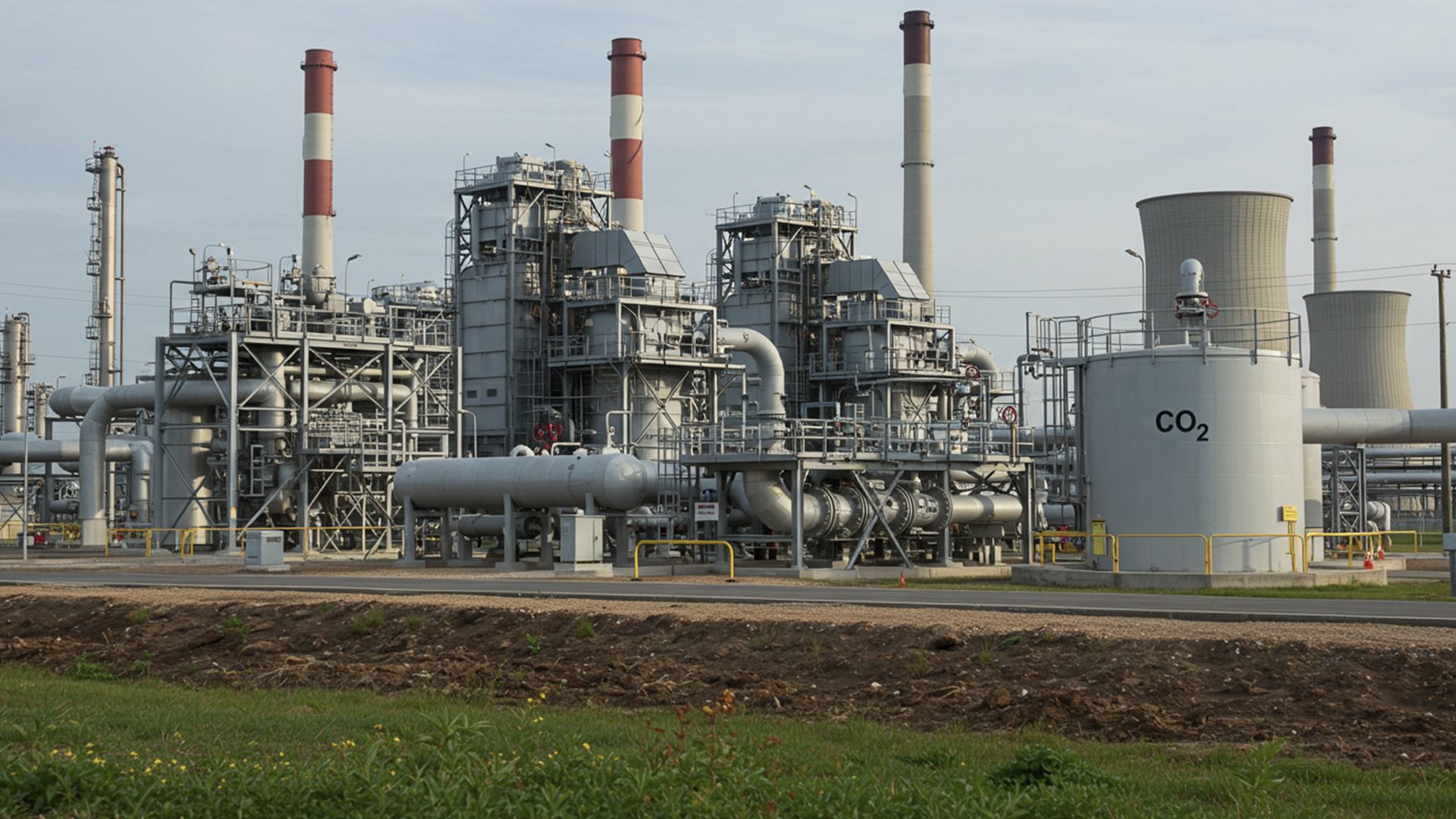Carbon Capture and Storage (CCS): A Critical Technology in the Fight Against Climate Change
22 Nisan 2025Carbon Capture and Storage (CCS): A Critical Technology in the Fight Against Climate Change
Climate change continues to bring not only environmental but also economic and social crises across the globe. Rising temperatures, extreme weather events, droughts, and biodiversity loss are now being felt everywhere. These developments clearly show the need to reduce global carbon emissions.
At this point, carbon capture and storage (CCS) technology plays a significant role in achieving climate targets.
What is Carbon Capture and Storage (CCS)?
Carbon capture and storage is the process of capturing carbon dioxide (CO₂) emissions resulting from fossil fuel use or industrial processes before they reach the atmosphere and storing them safely underground in geological formations. This technology directly prevents emissions at the source.
CCS consists of three main stages:
- Capture – CO₂ is separated from industrial emissions or power plant exhausts using filtration or chemical processes.
- Transport – The captured gas is transported to storage sites via pipelines or tankers.
- Storage – CO₂ is injected into deep underground reservoirs such as depleted oil and gas fields or saline aquifers for long-term storage.
When done properly, stored carbon can remain safely underground for hundreds or even thousands of years.
Why is CCS Important?
Reducing greenhouse gas emissions cannot be achieved by renewable energy transition alone. Heavy industry sectors, especially cement, steel, and chemicals, inherently release CO₂ through their production processes. Achieving zero emissions in these sectors is extremely difficult with current technologies. CCS technology bridges this gap by offering significant emissions reduction capabilities.
Moreover, many countries have committed to net zero emission targets. To reach these goals, negative emission technologies are also required. When combined with bioenergy (known as BECCS – Bioenergy with Carbon Capture and Storage), CCS can actually remove carbon from the atmosphere.
Global CCS Applications
As of 2024, over 30 commercial-scale CCS facilities are operational worldwide, mainly in North America and Europe. Notable projects include:
- Northern Lights (Norway): Europe’s first cross-border CCS infrastructure project.
- Boundary Dam (Canada): One of the world’s first fully integrated CCS systems.
- Petra Nova (USA): A large-scale application of advanced carbon capture technology.
These examples prove CCS is technically and economically viable.
CCS in Turkey
CCS is still in its early stages in Turkey. However, the growing awareness of sustainability and carbon management has increased interest in this technology.
Some pilot projects supported by the Ministry of Energy and TÜBİTAK (The Scientific and Technological Research Council of Turkey) are pioneering steps for future CCS integration.
Benefits of CCS
- Compatible with existing infrastructure – Especially for energy and industrial facilities.
- Rapid emission reduction – Effective in the short and medium term.
- Negative emissions possible – When used with bioenergy.
- Long-term solution – CO₂ can be safely stored underground for centuries.
Challenges and Risks
- High upfront costs – Both investment and operational costs are still high.
- Public perception – Concerns about underground storage may hinder acceptance.
- Regulatory gaps – Clear legal frameworks are still lacking in many countries.
- Long-term monitoring needed – Stored CO₂ must be continuously monitored for safety.
Biotrend Enerji’s Perspective
At Biotrend Enerji, we place environmental responsibility at the core of our energy production. Investing in technologies that reduce our carbon footprint is both a strategic and ethical priority. Alongside our renewable energy projects, we are committed to following developments in carbon management and supporting future-ready solutions.
Carbon capture and storage can play a vital role in the transition to a low-carbon economy. Despite its challenges, it is one of the few technologies that can significantly reduce emissions in hard-to-decarbonize sectors. With the right policies, public-private cooperation, and awareness, CCS can become a cornerstone of sustainable development in Turkey and globally.





